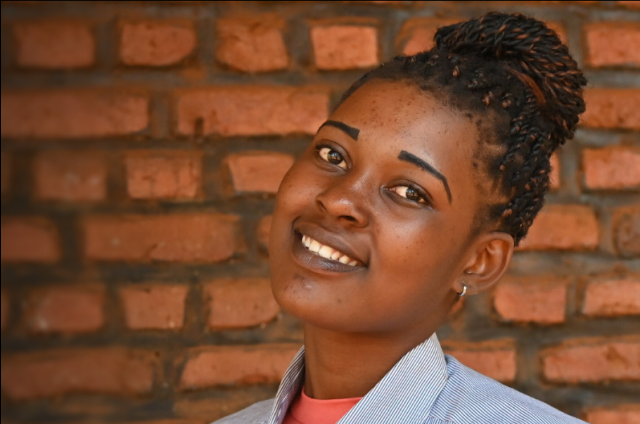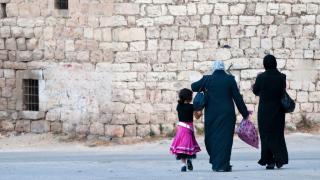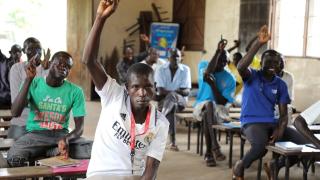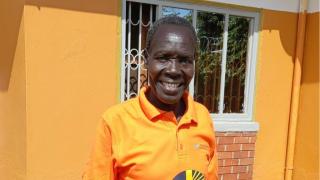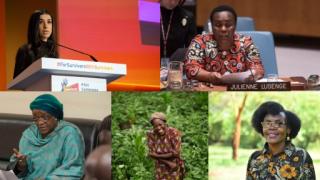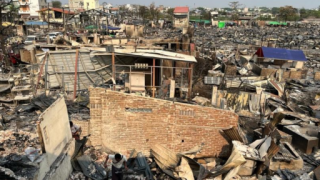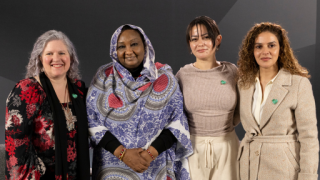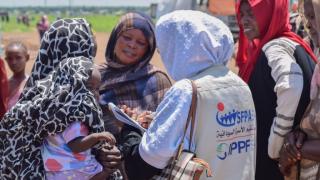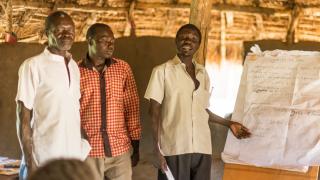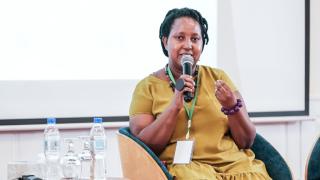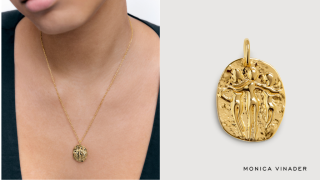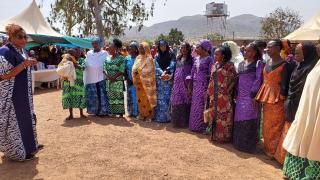Period Poverty Doesn’t Stop for Conflicts
Period Poverty Doesn’t Stop for Conflicts
PERIOD POVERTY: THE INABILITY TO AFFORD AND ACCESS PERIOD PRODUCTS, SANITATION AND HYGIENE FACILITIES, AND/OR EDUCATION AND AWARENESS TO MANAGE MENSTRUAL HEALTH 🩸
More than two billion people around the world experience a period every month.
Among us, there is an unwritten but universal rule: whether you’re at school, the office or in the loo at your local pub, if someone needs an emergency pad or tampon, you hand one over – even to complete strangers.
Access to hygienic period products and safe spaces in which to use them is essential – as is our right to manage our periods without shame.
But around the world, around 500 million people cannot afford or do not have access to what they need each month.
A 2023 ActionAid poll revealed that here in the UK:
- More than one in five women and people who menstruate struggle to afford period products – up from 12% in just one year. This amounts to an estimated 2.8 million people.
- Of those affected by period poverty, 41% kept sanitary pads or tampons in for longer than they should and 8% re-used disposable pads, which can be dangerous. 37% said they had used tissues or cotton wool instead of proper products in the last 12 months and 13% had used socks or other clothing. 9% resorted to using paper or newspaper.
In the UK, government schemes, charitable organisations and other institutions help limit the impact of poverty. More than a quarter of ActionAid’s survey respondents said they were able to rely on period products available at school or work, but 17% said they stay at home. This means losing time at school, work or socially.
The situation for those living in conflict-affected countries is even more dire.
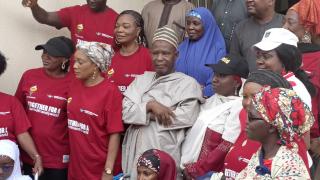
In times of crisis—like during war and conflict—existing healthcare systems and resources are put under additional stress. Period products, soap, clean water and access to safe toilets can be hard to come by, especially during displacement and in areas also affected by extreme poverty. We also know that the needs of women and girls are often overlooked during emergency water, sanitation and hygiene (WASH) programme strategising.
- One in ten girls in Sub-Saharan Africa misses school during their menstrual cycle.
- In Gaza, more than 540,000 women and girls of reproductive age lack access to items to support their hygiene, health and dignity, resorting to using cloth or sponges because they cannot access menstrual products.
- In Afghanistan, our team tells us that women living in refugee camps at the Pakistan border lack clean water and period products.
Period poverty is also perpetuated by stigma and shame, which encourages low levels of vital information and education, and increases discrimination. In some areas of the world, people on their period are deemed dirty or untouchable, restricting their movement and access to spaces.
Our recent consultation, “From Asking to Action”, saw Women for Women International local staff and partners speaking to 6,500 individual women in over 14 conflict-affected contexts who are not normally reached by either aid agencies or by consultation. We found that only 25% of women affected by conflict receive essential relief and recovery aid, with this figure plummeting to a mere 10% in Afghanistan. They called for increased, flexible and direct funding to local civil society and humanitarian organisations, including women-led organisations on the ground in conflict-affected countries who provide gender-sensitive life-saving assistance. 70% of the women we spoke to requested that support be more targeted towards women and girls, specifically asking that women and girls should be involved in the design and delivery of these efforts.
So, what can we do about it?
Women for Women International provides resources and training to help prevent and end period poverty
In humanitarian crises, Women for Women International distributes essential items, including kits containing menstrual products and soap.
In Palestine, for example, we have reached over 3,000 women and over 400 girls with critical items since violence in the region escalated in October 2023.
In Afghanistan, our local teams and partners have supported women and girls returning as refugees from Pakistan and in response to the Herat earthquakes.
Recently, our teams have launched a new vocational training option as part of our Stronger Women, Stronger Nations programme: learning to make their own safe and reusable period pads.
Watch this video to hear testimonials from women in our programmes.
Women for Women International also educates women about their health and wellness, with a focus on women's health. Grace, a Women for Women International Stronger Women, Stronger Nations programme graduate in Nigeria told us:
With the knowledge gained from the Stronger Women, Stronger Nations programme, I was selected for a two-week training on reusable menstrual pads.

Grace told us:
“I have always been concerned about how women and girls in my community manage their periods. Most of them use unhygienic materials like rags, leaves and even cow dung because they cannot afford disposable period pads. This practice exposes them to various health problems that are difficult to treat. Through the training, I have managed to educate them on the dangers of using these unhygienic materials and introduced them to reusable period pads made from healthy materials.
I am also teaching my two daughters how to produce the pads, and my eldest daughter, Christiana, who is in secondary school, uses the pads. She also educates the girls in her school on menstrual hygiene."
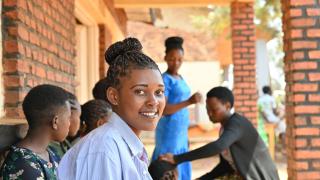
Educating people on menstrual management can be life-changing and life-saving. It reduces the risk of possibly fatal infections while also helping people stay in school or continue working while they are on their periods.
We recently launched our Adolescent Girls Programme – a 10-month programme aimed at teenage girls, adapted from our Stronger Women, Stronger Nations programme for women.
The curriculum includes a visit to a local health centre/a visit from a health worker to discuss services available to girls and to dispel myths related to their health, including sexual and reproductive health.
Women for Women International's work is also fighting period poverty through local partnerships. Child Bride Solidarity is one of our partner organisations in South Sudan, supported through our Resourcing Change project, which funds Women’s Rights Organisations across the globe. As part of their mission to strengthen the voice and leadership of women in peacebuilding, they are providing menstrual hygiene management and sexual and reproductive health training in schools and distributing menstrual pads to ensure access to necessary supplies and information.
Child Bride Solidarity also involve boys in these educational initiatives, reducing stigma by raising awareness about the naturalness of menstruation and addressing harmful social norms. They have seen a reduction in bullying behaviour by boys and increased participation of both genders in discussions about menstrual management. Their initiatives have also led to a decrease in girls’ absenteeism at school due to menstrual stigma, resulting in lower dropout rates and fewer school transfers.
We know that period poverty will persist for as long as periods are deemed dirty or shameful, and for as long as there is insufficient investment in gender-sensitive programmes. For the millions of people impacted each month, this limits their freedoms, endangers their health and reduces their life-long opportunities.
Period poverty is a global issue—made worse by war and conflict—but Women for Women International's work is proof that, together, we have the power to prevent it.
Read more
To mark International Day for the Elimination of Sexual Violence in Conflict, we are amplifying the voices of women who are not just enduring the harsh realities of war and displacement - but who are also working every day to protect, support and empower others. Hear from two women in Palestine.
At Women for Women International, we count a number of dedicated and compassionate male staff among our global community working towards a more equitable future. I spoke to several of our male colleagues – from Iraq and South Sudan, to DRC and the UK. I asked what allyship means to them, how their work has shaped their understanding of gender justice, and what they’ve learned from the women in their lives. What emerged was not just a collection of stories, but a testament to the quiet, determined work of transformation – both personal and societal.
Florence Dumba is a social empowerment trainer at Women for Women International in South Sudan. Her work, working with survivors and creating safe spaces for women to heal from their trauma, is grounded in her own experience of being abducted twice.
In honour of the International Day for the Elimination of Sexual Violence in Conflict, we spotlight five extraordinary women leading the fight against this devastating form of violence. From Nobel laureates to grassroots activists, these changemakers are demanding justice, breaking silence and creating hope for survivors around the world.
On March 28, 2025, a powerful 7.7-magnitude earthquake struck Myanmar, intensifying a crisis already marked by armed conflict, political instability, and widespread displacement. What was once a complex humanitarian emergency has now deepened into a compounded catastrophe - one that disproportionately affects women and girls. As infrastructure collapses and humanitarian access becomes even more restricted, the disaster has laid bare the urgent need for gender-sensitive responses in conflict-affected settings.
CSW 69: One Month Later
subtitle:
Read our reflection blog on CSW 69 - coming 30 years after the landmark Beijing Platform for Action, it felt like a once-in-a-generation opportunity - an invitation for bold thinking, for reshaping decision-making spaces, and for shifting the dial on whose expertise is recognised and integrated into peacebuilding and the broader Women, Peace and Security (WPS) agenda.
Read about how Dr. Asma Elnaeem and Dr. Hiba Ahmed are providing vital healthcare and support to women in Sudan amidst the ongoing conflict, showing incredible resilience despite immense challenges.
The new Netflix show Adolescence has captivated audiences across the UK, tackling the pressing issue of boys and young men being radicalised through online communities that promote harmful and extreme ideas about masculinity. But what does the show have to do with our work in conflict-affected countries, where life on the ground looks very different?
Reparations and the WPS Agenda
subtitle:
Read about Global Policy and Advocacy Manager, Maryline Njoroge's reflections on presenting at a panel at the GIMAC conference: “Peace, Security, and Reparative Justice: Addressing the colonial legacy and its gendered impact”.
Our partnership with Monica Vinader is so much more than a financial commitment. It sends a powerful message to women survivors of war that says: I stand with you, you are not alone. Since 2015, our partnership with Monica Vinader has helped over 420 women (and counting!) reach their full potential through our Stronger Women, Stronger Nations programme across the countries we work in.
Women's History Month Film List
subtitle:
Explore powerful films that tell vital stories of women survivors of war - narratives of survival, resistance, and the unwavering spirit of women who continue to rebuild, dream and inspire, even in the darkest of times.
Bukola Onyishi, our Country Director in Nigeria, shares how gratuates of our year-long programme have taken the initiative to pass along their learnings to 475 women from diverse religious and ethnic backgrounds. Bukola says "Their commitment to sharing knowledge and fostering resilience has been nothing short of inspiring to me."
Each week, these trainers—graduates from our programme—brought the women together to teach them social and economic skills using participant handbooks, ensuring that the lessons they once received from Women for Women International continue to reach more women.

